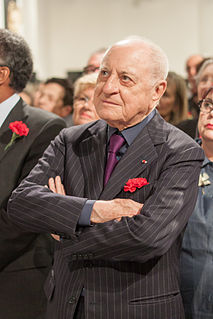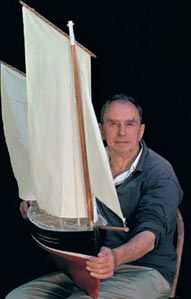A Quote by Neil deGrasse Tyson
In science, if you don't do it, somebody else will. Whereas in art, if Beethoven didn't compose the 'Ninth Symphony,' no one else before or after is going to compose the 'Ninth Symphony' that he composed; no one else is going to paint 'Starry Night' by van Gogh.
Related Quotes
Creativity is seeing what everyone else sees, but then thinking a new thought that has never been thought before and expressing it somehow. It could be with art, a sculpture, music or even in science. The difference, however, between scientific creativity and any other kind of creativity, is that no matter how long you wait, no one else will ever compose "Beethoven's Ninth Symphony" except for Beethoven. No matter what you do, no one else will paint Van Gogh's "Starry Night." Only Van Gogh could do that because it came from his creativity.
The point of recapitulation in the first movement of Beethoven's Ninth Symphony unleashes one of the most horrifyingly violent episodes in the history of music....The point is not to hold up Beethoven as exceptionally monstrous. The Ninth Symphony is probably our most compelling articulation in music of the contradictory impulses that have organized patriarchal culture since the Enlightenment. Moreover, within the parameters of his own musical compositions, he may be heard as enacting a critique of narrative obligations that is...devestating.
The splendor of a human heart that trusts it is loved unconditionally gives God more pleasure than Westminster Cathedral, the Sistine Chapel, Beethoven’s “Ninth Symphony”, Van Gogh’s “Sunflowers”, the sight of 10,000 butterflies in flight, or the scent of a million orchids in bloom. Trust is our gift back to God, and he finds it so enchanting that Jesus died for love of it.
During a rehearsal of Beethoven's Ninth Symphony the members of the orchestra were so overwhelmingly moved by the conducting of Arturo Toscanini that they rose as one man and applauded him. When the spontaneous cheering has subsided, Toscanini turned to his men, tears glistening in his eyes. "Please . . . please! Don't do this! You see, gentlemen, it isn't me you should applaud. It's Beethoven!"
The point of recapitulation in the first movement of the Ninth [Symphony of Beethoven] is one of the most horrifying moments in music, as the carefully prepared cadence is frustrated, damming up energy which finally explodes in the throttling, murderous rage of a rapist incapable of attaining release.
A visionary company is like a great work of art. Think of Michelangelo's scenes from Genesis on the ceiling of the Sistine Chapel or his statue of David. Think of a great and enduring novel like Huckleberry Finn or Crime and Punishment. Think of Beethoven's Ninth Symphony or Shakespeare's Henry V. Think of a beautifully designed building, like the masterpieces of Frank Lloyd Wright or Ludwig Mies van der Rohe. You can't point to any one single item that makes the whole thing work; it's the entire work-all the pieces working together to create an overall effect-that leads to enduring greatness.



































